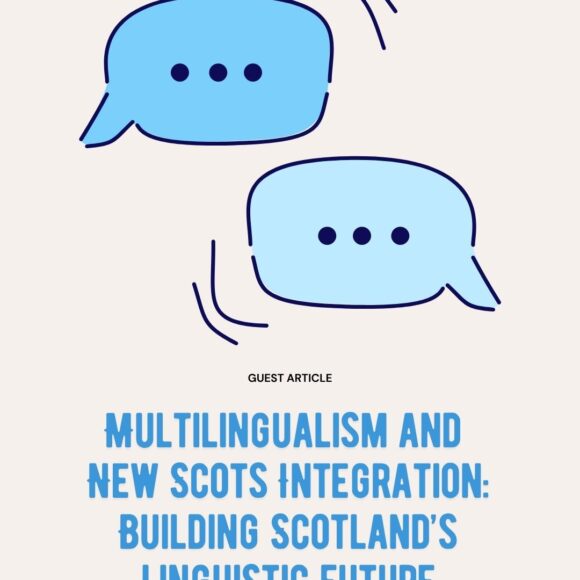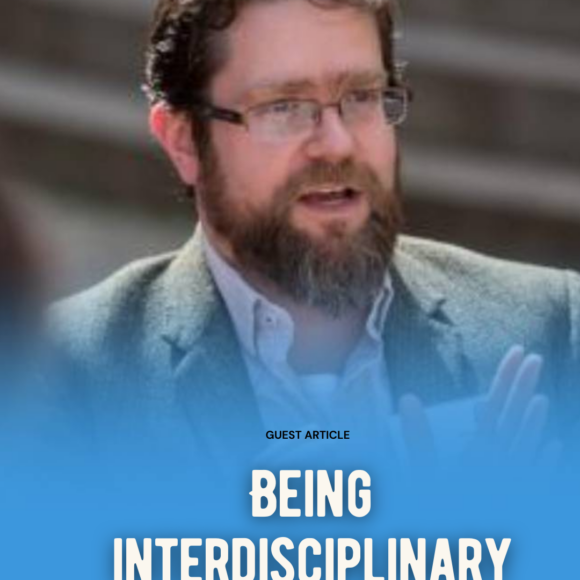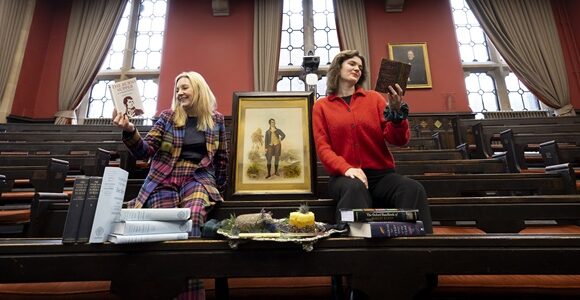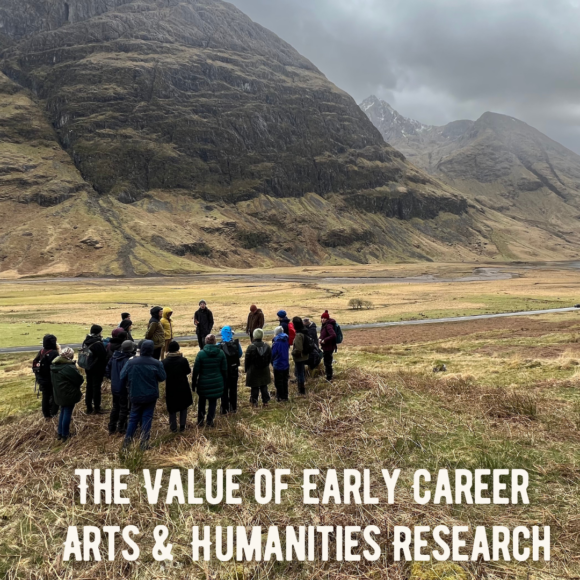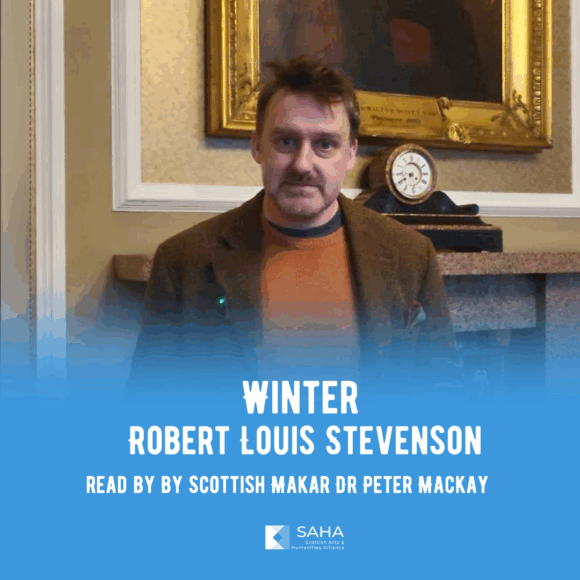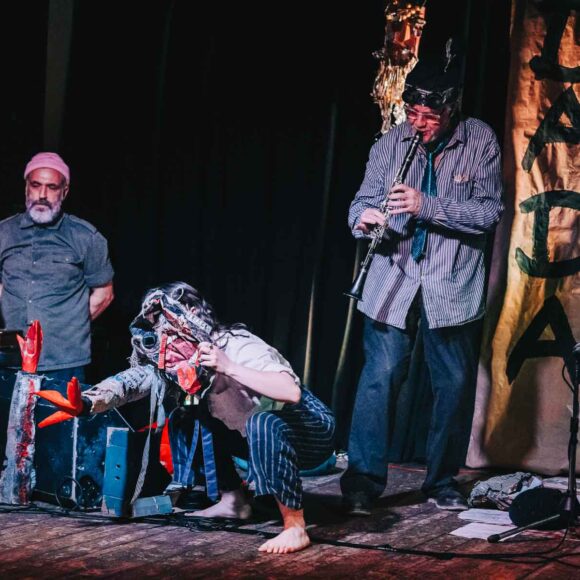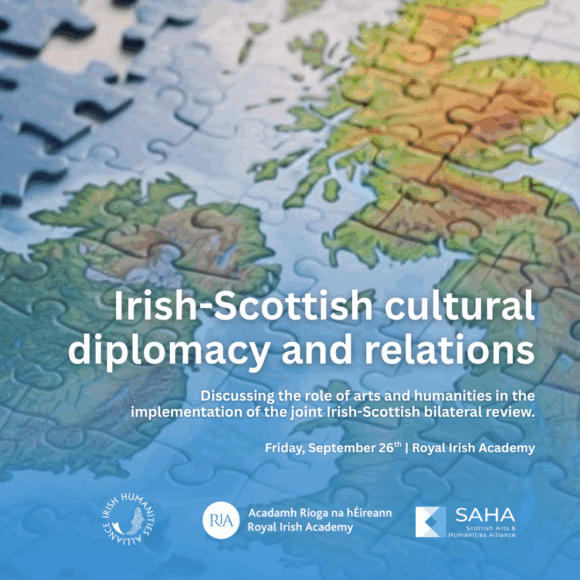For a time, some people assumed Derick Thomson the scholar and Ruaraidh MacThòmais the Gaelic poet to be two different human beings – and were surprised to find out that they both inhabited the same body. Given Thomson’s versatility and the scope of his output, one could easily imagine a small team being responsible for his activities. Born in the Isle of Lewis, Thomson (Stornoway, 1921 – Glasgow, 2012) stamped his vision on Gaelic Scotland in the second half of the twentieth century and has been singled out for doing more for Gaelic than any other individual in the history of the language. His vision of the Gaelic revival was characterised by high standards, openness to second-language users, and a broad European outlook.
POET & SHORT STORY WRITER
With eight poetry collections which appeared during his lifetime, Thomson is one of the most prolific poets who worked in Gaelic in the second half of the twentieth century. He was the first one to use free verse consistently in Gaelic and influenced the following generations of poets in terms of form and subject matter. He addressed his experience of growing up in Lewis between the two world wars and living between two languages and cultures, reflected on the multicultural realities of Glasgow, and commented on the situation of Gaelic and on Scottish politics. His poetry is characterised by a sense of humour and attention paid to sensual impressions. Although known primarily as a poet, Thomson also wrote accomplished short stories in Gaelic, often focusing on women characters.
SCHOLAR
For thirty years, Thomson served as Chair of Celtic at the University of Glasgow, and he published a number of groundbreaking works of scholarship, including The Gaelic Sources of Macpherson’s ‘Ossian’, where he for the first time identified the Gaelic ballads James Macpherson was drawing on and analysed their use in detail, and continued to publish on the Ossian controversy throughout his life. His An Introduction to Gaelic Poetry and The Companion to Gaelic Scotland which he edited made Scottish Gaelic literature and culture more accessible to international audiences and are still indispensable to researchers working in the field. His special interest was the work of the eighteenth-century Jacobite poet Alasdair Mac Mhaighstir Alasdair.
MAGAZINE EDITOR
Since there was no magazine in the early 1950s that would provide a platform for new writing and space to discuss current affairs through the medium of Gaelic, Thomson and BBC producer Finlay J. MacDonald founded the quarterly Gairm [‘call of the cockerel’]. The magazine appeared regularly for fifty years, from 1952 to 2002, and Thomson steered it as editor until the very end. Gairm played a vital role in the development of modern Gaelic poetry, short story, and journalism in the second half of the twentieth century, and most Gaelic writers took the opportunity to publish in it and often had their first collections brought out by Gairm Publications, the associated publishing venture. In Gairm editorials, Thomson promoted his vision of the Gaelic revival and commented on a wide range of topics, from Central European politics to football, sectarian violence, and global warming.
TRANSLATOR
Thomson was a gifted linguist and translator and supported translation into Gaelic as a crucial means of increasing the flexibility of the language and enriching Gaelic culture. His own translations into Gaelic include poetry by Hugh MacDiarmid, W.B. Yeats, Edwin Muir, and Shakespeare, and also a complete biology textbook – a task he undertook to prove the language was able to deal with any modern topic in substantial detail and to inspire others to follow suit with similar initiatives.
GAELIC ACTIVIST
In 1968, Thomson was crucially involved in the establishment of the Gaelic Books Council, a body which is still active and continues to support Gaelic writers and publishers through an expanding range of activities. He chaired the group which drafted the 1978 Gaelic Policy for the Scottish National Party, a document which not only outlined a number of practical steps for the promotion of Gaelic but also proposed equal provisions for Scots language. Apart from Gaelic and Scots, Thomson had a lifelong interest in other minoritised and lesser-used languages, from Irish and Welsh to Maltese and Sámi.
Derick Thomson’s remarkable career is the subject of the new monograph Derick Thomson and the Gaelic Revival (Edinburgh University Press, 2024).
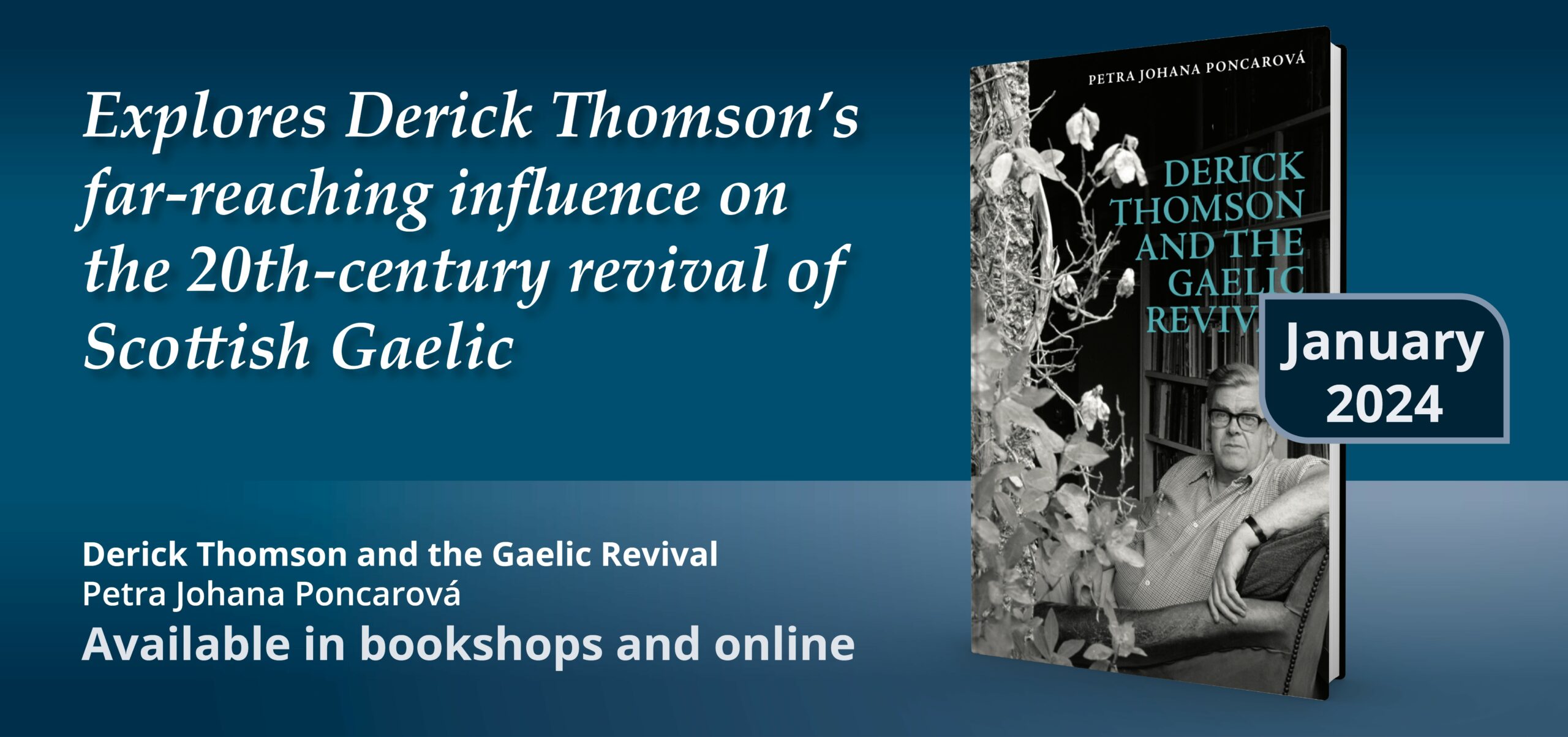
This article was written by Dr Petra Johana Poncarová a Marie Curie Fellow at the University of Glasgow. She serves as secretary of the International Association for the Study of Scottish Literatures and is one of the co-directors of Ionad Eòghainn MhicLachlainn | National Centre for Gaelic Translation. She was the manager of the 3rd World Congress of Scottish Literatures (Prague, 2022). With the ASL, she published a Scotnote on Thomson’s Gaelic poetry in 2020, and her monograph Derick Thomson and the Gaelic Revival is forthcoming from the Edinburgh University Press.
